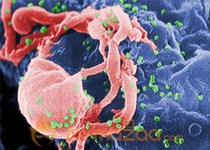Cuba has become the first country in the world to prevent mother-to-child transmission of HIV, the World Health Organization (WHO) announced in a news release Tuesday.
“This new validation process will play a critical role in tracking and understanding progress in the fight to end the AIDS epidemic, particularly as many more countries, including those in sub-Saharan Africa where the pediatric HIV/AIDS burden is the highest, are poised to undergo the eMTCT (elimination of mother-to-child transmission of HIV) validation in the near future,” Stephen Lee, vice president of program implementation and country management at the Elizabeth Glaser Pediatric AIDS Foundation (EGPAF), said in the news release.
The EGPAF, an advocacy and research group, supports more than 7,000 facilities in 15 countries to implement prevention, care and treatment services. The news release did not provide details on the effective prevention method executed.
According to the WHO, 35 million people were living with HIV/AIDS worldwide in 2013. In the absence of transmission intervention, there is a 15 to 45 percent chance of mother-to-child transmission of HIV. With antiretroviral treatment, that risk falls to below 1 percent, according to the Centers for Disease Control and Prevention (CDC).
From the start of the epidemic through 2009, the CDC estimated that over 5,600 people who were diagnosed with AIDS under age 13 died in United States. Of the total, nearly 5,000, or 89 percent, of them were infected perinatally.
The CDC estimates that at the end of 2012, 1.2 million people ages 13 and older were living with HIV in the United States, including over 156,000 whose infections had not been diagnosed.










